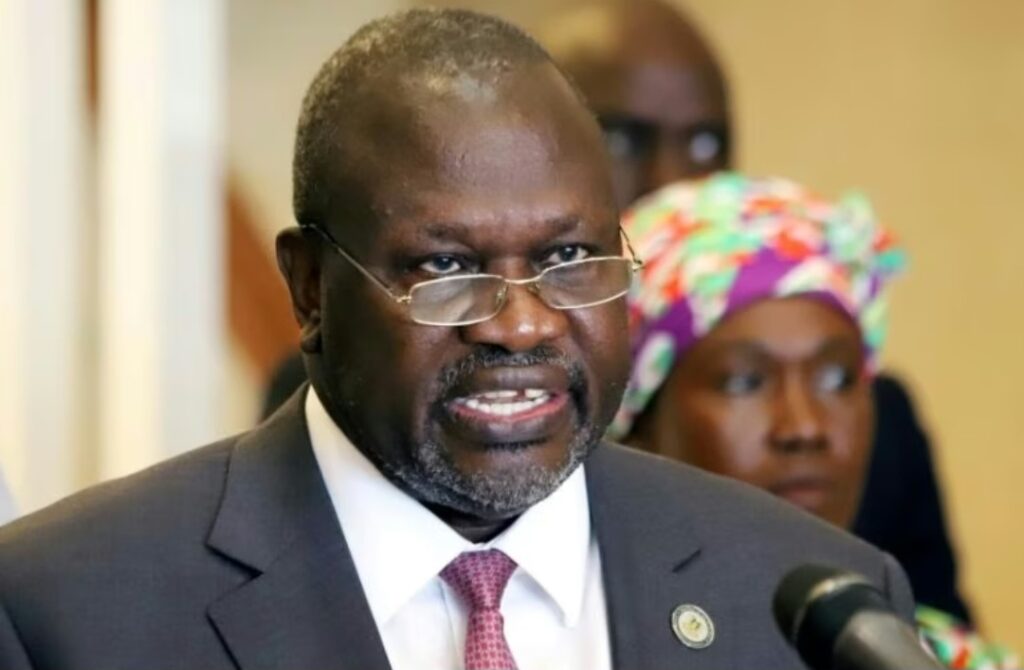
Esther Imonmion
South Sudan’s First Vice President Riek Machar faces charges of treason and other serious crimes, local justice authorities announced Thursday, raising fears that the East African nation may be edging toward renewed civil conflict.
Machar has been under house arrest since March after the transitional government accused him of subversive activities against President Salva Kiir. Pro-government forces have clashed with militias and armed groups allegedly loyal to Machar, who serves as the country’s No. 2 under a fragile 2018 peace agreement that has yet to be fully implemented.
In addition to treason, Machar and seven others face charges including murder, conspiracy, terrorism, destruction of public property and military assets, and crimes against humanity. These charges relate to a violent incident in March when the militia known as the White Army overran a government garrison in Nasir, Upper Nile state, killing its commanding officer and others. According to the justice ministry, the attack was influenced by Machar and others through “coordinated military and political structures.”
The decision to press criminal charges against Machar is widely expected to further destabilize South Sudan. The government faces increasing pressure from regional leaders to reach a political settlement that prevents a return to full-scale war.
It is unclear when Machar will be formally presented in court. His exact location in South Sudan remains unknown, though his political supporters have long demanded his release. The justice ministry said Machar and his co-accused “have been informed of the charges against them and their constitutional rights.”
Machar’s spokesman, Puok Both Baluang, described the charges as “a political witch hunt,” alleging that the justice system lacks independence and can be politically directed. Civic leader Edmund Yakani urged that the suspects be tried in a competent court, warning against “a kangaroo court of law,” and expressed hope that citizens would be allowed to attend proceedings.
Kiir and Machar are historical leaders of the Sudan People’s Liberation Movement (SPLM), the rebel group that led South Sudan to independence from Sudan in 2011. However, their long-standing rivalry is rooted in ethnic divisions—Kiir is Dinka, the largest ethnic group, while Machar is Nuer, the second-largest. Their feud dates back to the 1990s when Machar led a breakaway SPLM unit, which sparked accusations of betrayal and violent clashes, including a massacre in Bor that targeted the Dinka.
Analysts note that even as part of the same transitional government, Kiir and Machar remain at odds, with Machar awaiting his turn at the presidency while Kiir seeks to maintain his grip on power. Their rivalry erupted into full-scale civil war in 2013 after Kiir dismissed Machar over an alleged coup plot, leaving an estimated 400,000 people dead.
